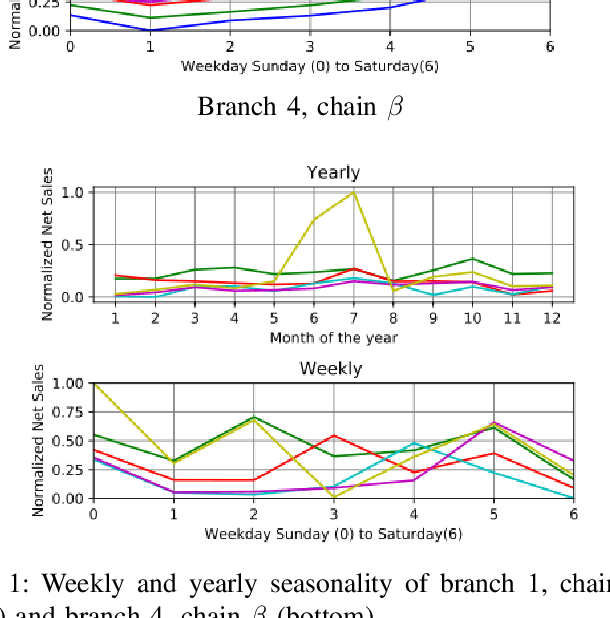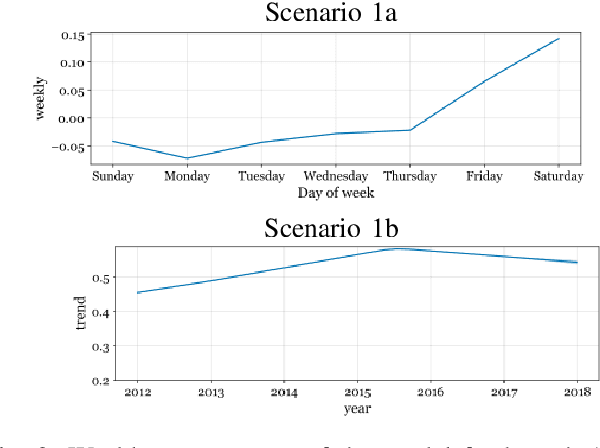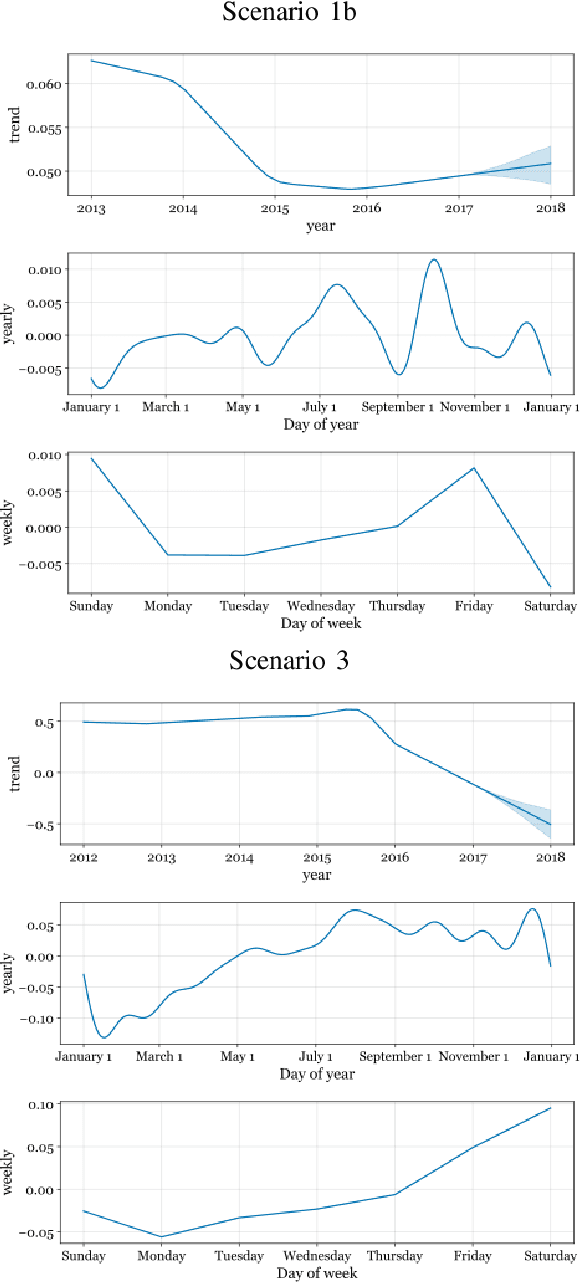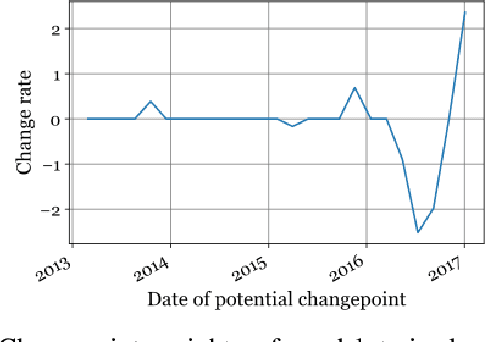Yusuf Peker
How to Learn from Others: Transfer Machine Learning with Additive Regression Models to Improve Sales Forecasting
May 15, 2020



Abstract:In a variety of business situations, the introduction or improvement of machine learning approaches is impaired as these cannot draw on existing analytical models. However, in many cases similar problems may have already been solved elsewhere-but the accumulated analytical knowledge cannot be tapped to solve a new problem, e.g., because of privacy barriers. For the particular purpose of sales forecasting for similar entities, we propose a transfer machine learning approach based on additive regression models that lets new entities benefit from models of existing entities. We evaluate the approach on a rich, multi-year dataset of multiple restaurant branches. We differentiate the options to simply transfer models from one branch to another ("zero shot") or to transfer and adapt them. We analyze feasibility and performance against several forecasting benchmarks. The results show the potential of the approach to exploit the collectively available analytical knowledge. Thus, we contribute an approach that is generalizable beyond sales forecasting and the specific use case in particular. In addition, we demonstrate its feasibility for a typical use case as well as the potential for improving forecasting quality. These results should inform academia, as they help to leverage knowledge across various entities, and have immediate practical application in industry.
 Add to Chrome
Add to Chrome Add to Firefox
Add to Firefox Add to Edge
Add to Edge